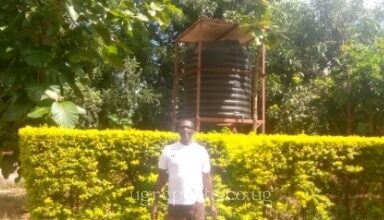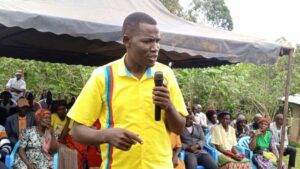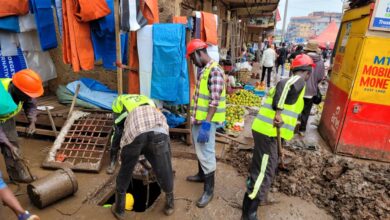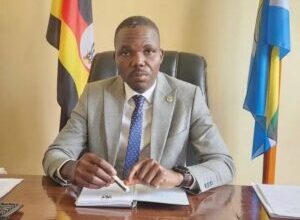Cultural leaders rallied to embrace four-acre model farming
Launched three years ago, this program aims to foster community transformation through sustainable agricultural practices.

Gulu: Dr. Eng. Michael Moses Odongo Okune, the newly elected paramount chief (Won Nyaci) of Ker Kwaro Lanago-Lango cultural institution, has taken a proactive stance by rallying cultural leaders in both Lango and Acholi regions to embrace the four-acre model farming approach.
The primary goal of the four-acre model is to empower farmers and enhance their livelihoods. Under this approach, a farmer aims to earn up to two hundred million shillings from a four-acre piece of land.
President Yoweri Museveni has outlined a specific allocation for each acre, whereby the first acre is dedicated to coffee cultivation and the second acre is reserved for fruit trees such as mangoes, oranges, and pineapples.
The third acre can be utilized for food crops to sustain the family. Examples include cassava, bananas, upland rice, irrigation rice, Irish potatoes, sorghum, or millet, while the fourth acre can be designated for various purposes like pasture to support dairy cattle (approximately 8 cows).
The four-acre model is part of the broader Parish Development Model initiative.
Launched three years ago, this program aims to foster community transformation through sustainable agricultural practices.
By encouraging farmers to adopt the four-acre approach, the government seeks to address food insecurity, promote livelihoods, and facilitate mindset changes regarding land utilization.
Okune emphasizes that cultural leaders must lead by example. They should personally embrace the model before sensitizing their communities to adopt it.
The model’s novelty and alignment with the money economy make it a promising avenue for economic growth and poverty reduction.
Okune’s presentation on the “roles of cultural leaders in building peace” underscores the importance of productive engagement rather than perpetuating negative cultural histories.
He calls for collaboration with government entities and recognizes that states possess the necessary resources and strategies to lift people out of poverty.
By working together, cultural leaders and government agencies can create a conducive environment for sustainable development and peace.
Okune also emphasizes the critical importance of harmonious coexistence with nature in the fight against global warming. He attributes the current environmental challenges to the destruction of ecosystems and advocates for a more sustainable approach.
However, despite the natural beauty of the Lango region, peace remains elusive. The community grapples with several issues with cattle rustling, where incidents of cattle theft persist, disrupting livelihoods and causing tension among communities.
In addition, many Lango residents face economic difficulties, hindering their well-being and development.
Health challenges also continue to affect the population, necessitating concerted efforts for better healthcare, and farmers often receive unfair prices for their produce, exacerbating poverty.
Conflicts between different clans create divisions and hinder social cohesion. In light of these challenges, cultural leaders play a crucial role in restoring peace.
Okune calls upon them to engage in mediation and conflict resolution. By fostering dialogue and understanding, they can contribute to community healing and stability.
Recently, Okune addressed a gathering at St. Monica Girls’ Tailoring School during the GANAL prayer peace week.
This annual event, which commenced on April 22 and ran until the 26th, focuses on the theme of “Building a Synodal Church on Communion, Participation, and Mission.”
GANAL stands for Gulu Archdiocese, Nebi, Arua, and Lira. It symbolizes unity and renewal, often referred to as “Grow All New Alive in Love.”
The 2024 GANAL prayer brought together approximately 5,000 participants from various provincial dioceses in Northern Uganda, including Lira, Nebi, and Arua. Cultural and religious leaders joined hands to seek peace and promote harmonious coexistence.
Archbishop Emeritus Dr. John Baptist Odama of the Gulu Archdiocese acknowledges the positive impact of GANAL prayer. Since its inception in 2006, this initiative has worked tirelessly to foster sustainable peace and unity among diverse communities and tribes in Northern Uganda.
Do you have an advertisement or article you want to publish? Mail us at theugreports@gmail.com or WhatsApp +256757022363.






